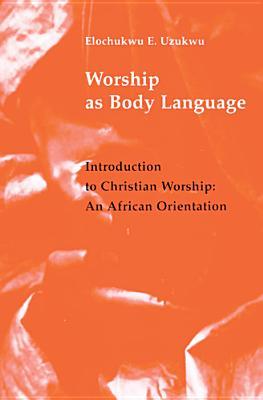Worship sets an assembly in motion movement towards God in response to God's movement towards humans thus creating a resilient and caring community. Worship as Body Language brings the African community's experience of the body and its gestures together with the Christian liturgy, since worship and social action are closely related.
The body language" or gestures of praise, adoration, contemplation, ritual dance, and care of the neighbor are meaningful to the ethnic group; African Christians tune into these body motions to express the one Christian faith. In Worship as Body Language, Father Uzukwu details how patterns of African ritual assemblies and sacred narratives have merged with Jewish, gospel, and early Church traditions to create living Christian communities and liturgies.
Using a socio-historical method, this book sheds new light on liturgical action and theology, and suggests more transition rituals. It also provides samples of emergent African Christian liturgies that emphasize intense community participation with appropriate gestures. These local liturgies attest to the patristic principle that different customs actually confirm the unity of our faith in Christ. Scholars teaching and researching the foundations of the liturgy and liturgical inculturation, graduate students, and those organizing workshops on the regional, diocesan, or parish level will find Worship as Body Language a ready handbook on the liturgy. It is also a useful textbook for introducing college students and seminarians to the anthropological, historical, and theological dimensions of the liturgy.
Elochukwu E. Uzukwu, CSSp, ThD, lectures in liturgy and African theology in seminaries and Catholic universities in Nigeria, Congo, Zaire, and France. He is the author of Liturgy: Truly Christian, Truly African, and the editor of Bulletin of Ecumenical Theology.
"